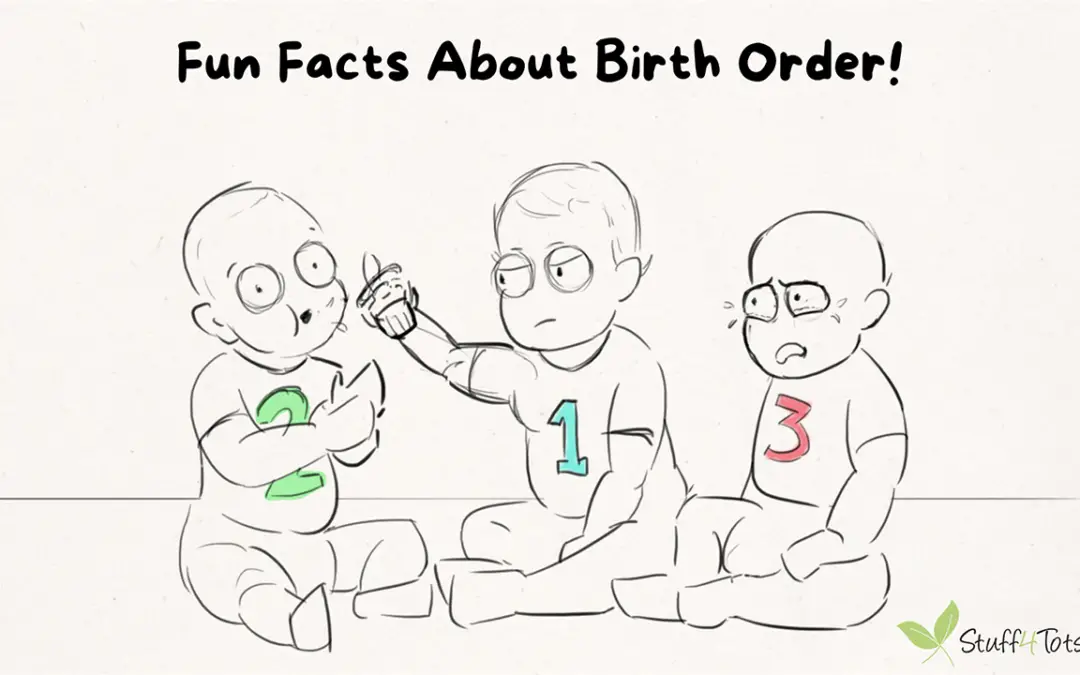The Birth Order Theory by Dr. Alfred Adler suggests that birth order has a lasting impact on our personality and characteristics. It is very much where the idea of “middle child syndrome” started, and many believe in the validity of birth order theory, as they relate closely to their identity within their birth order.
While it has never been proved, there has been quite a bit of research done on either side of the theory, and because of this, there have been some great finds about birth order and how it could possibly influence our personality and characteristics.
We decided to find out for ourselves. We interviewed over 100 people – from Only Children to members of huge families – to test the scientific theories around birth order. Ok. Our survey wasn’t exactly the most robust science 🙂 but hopefully you’ll agree it was fun and interesting.
Here are some fun facts about birth order!
Table of Contents
Firstborns Appear More Intelligent
Firstborns often appear more intelligent than their siblings. Not only do they appear to be more intelligent, but often have an IQ that is on average one or two points above their siblings as well.
This difference in IQ levels, while minute, is most probably a result of parents having more time and resources to spare on their firstborn, giving them all their attention before their next child comes along.
That one-on-one time that the firstborn experiences with their parents is invaluable and siblings born after that will have to share out this attention.
Due to this, firstborns tend to appear more intelligent, and do better at school in the first few years, thanks to the sole attention they received for a while!
Our Birth Order survey backed this up actually – well at least in the minds of the Older Children themselves! 60% of older children claimed to be the brains of the family!
Are you looking for educational toys for your firstborn? Click here to view this product on Amazon.

The Youngest Are Most Creative
The youngest sibling often seems to be the free spirit of the family, and this is most likely a result of more relaxed parenting.
This relaxed parenting leads to the youngest child following their passions more freely, and this then leads to them being more creative than their siblings.
Parents are also more likely to encourage their youngest child to follow their passions, as they would have saved the higher expectations for their firstborn.
Do you want to enhance your child’s creativity? Click here to check it out on Amazon.
Middle Children Move Further Away
Middle children often feel caught between their siblings, and look to make a life of their own. This often results in the middle child living furthest away from their family later on in life.
Moving further away comes from a desire to form their own identity, and to make a life on their own.
Middle children also tend to have more desire to leave home sooner, to seek out their own sense of identity. Depending on the age gap, many middle children leave home before their older siblings.
Middle Children Are Peacemakers
Having to navigate between older and younger siblings, middle children make great peacemakers. Being stuck in the middle helps middle children develop essential skills such as resilience, diplomacy, and negotiation.
Not receiving as much attention from parents as the oldest or youngest siblings, middle children are also most likely to fight against injustices and be more emotionally mature than their siblings.
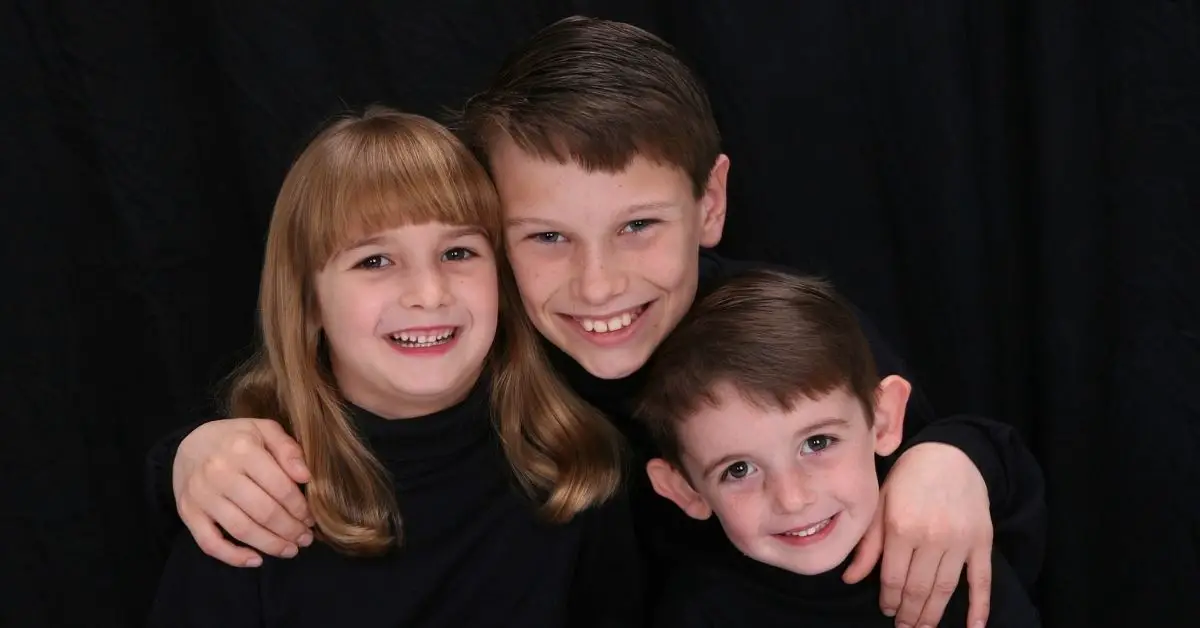
Firstborns Are Natural Leaders
Firstborns adapt to become more responsible when their younger siblings are born, and this often happens naturally. This added responsibility results in firstborns becoming natural leaders, and this is a trait that stays with them throughout life.
No matter how much responsibility is put on the eldest child, the nurturing mentality that they develop is natural, and not only does it lead to them appear more mature and responsible, but it helps them understand the importance of responsibility more as well.
In our survey, we found that majority of only children were more likely to be a follower instead of a leader. Would you agree, Onlies? 🙂
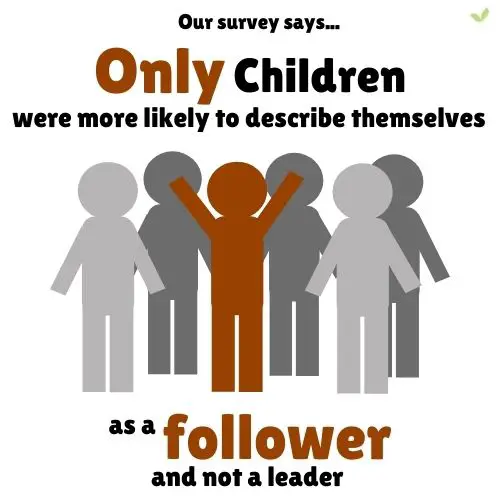
Middle Children Are More Sociable
Middle child syndrome dictates that the middle child does not get as much attention from their parents as their older and younger siblings. Due to this, middle children often look for companionship and attention from their friends.
This means that middle children often do better in social situations, and depend on their friendships more than their siblings would.
Middle Children Are Often Opposites Of Their Older Sibling
The firstborn child fills a very particular role, and once the middle child is born, they look to fill out a role that is completely different from that of their older siblings.
This could also present as the middle child acting out and rebelling, looking for alternative ways to receive attention, or to find their sense of self. It could also show as them being a people pleaser!
Younger Siblings Are More Manipulative
Being manipulative is not necessarily a bad thing in this case! By the time the youngest child is born, parents are more relaxed with discipline and structure. As a result of this, the youngest finds it easier to charm their way out of trouble, and knows exactly how to receive attention when they want it.
The youngest children are also smaller than their siblings and need to rely on charm and manipulation to get what they want. Once again, this isn’t a bad thing, it is just how they learn to deal with the world and their place in the family.

Firstborns Relate To Adults Better
Firstborns are given their parent’s undivided attention for a while until their siblings are born. Because of this, they are used to interacting with adults closely, and this often means they are more comfortable when around adults, and they tend to prefer the company of adults as well.
The oldest child also displays more maturity than their siblings, and this maturity is what helps them relate to adults more.
Over Half U.S Presidents Were Middle Children
Did you know that 52% of all presidents of the U.S were middle children? For a long time, it was believed that most U.S presidents were firstborns, but this was only because their older sisters were never considered firstborns, only the first male born was considered the firstborn.
Some of the most notable middle child presidents were Theodore Roosevelt, JFK, and Abraham Lincoln.
Middle Children Make Great Partners
Middle children seek attention and commitment and look for someone they can depend on. This makes them great partners in relationships later on in life.
In a relationship, a middle child will have a stronger sense of dependability, commitment, and loyalty, all of which make for a great partner, and for a healthy relationship. Much of their focus is put into their relationship, which is another great quality to have.
The Youngest Sibling Gets Away With More
Parents tend to be more lenient with the youngest child, as they have done their years of structure and discipline, and are more relaxed and comfortable in their parenting by the time the last child is born.
In the eyes of siblings, this often appears as the youngest sibling getting away with more, and not finding themselves in trouble for doing something that would have definitely got their older siblings in trouble!
This also leads to the belief that younger children are more coddled than their siblings, and receive more love and attention from their parents.
Are you looking for the best electronic gadget for your kid? Check it out on Amazon.

Firstborns Are More Anxious
First-time parents are known to worry more over their baby and be scared of all the dangers in the world. This does relax over time, and by the time the youngest is born, parents are more comfortable raising their children and don’t see them as so fragile anymore.
Sometimes, the oldest child can absorb some of this stress and anxiety from their parents, and this anxiety could follow them throughout life.
The pressure put on older children also leads to this anxiety, as they have the pressure of meeting their parent’s expectations.
Majority of our survey respondents with siblings said that having siblings makes them more easy going and relaxed, while Onlies were most likely to find it harder to ease up. If you belong to any of these categories, what do you think? 🙂
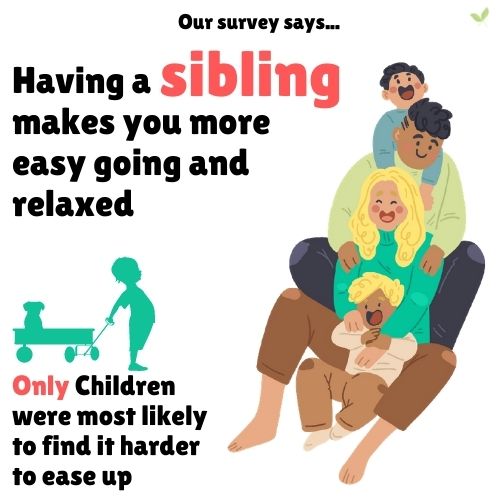
Middle Children Are Going Extinct
In previous decades, it was common for families to have more than three children. Times are changing, and families are now more likely to only have one or two children.
As families have fewer children, middle children are becoming rare.
Our survey says otherwise though, as 57% of our respondents were from families with 3 or more children!
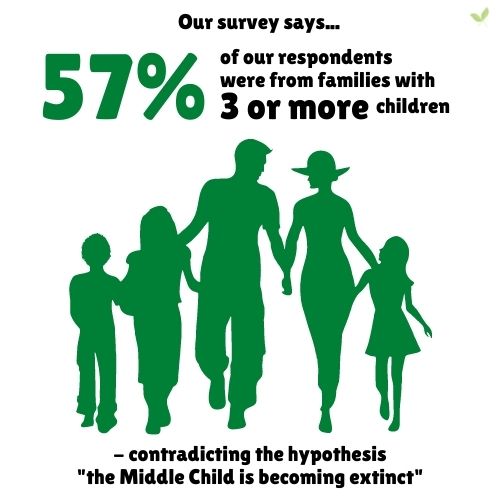
Firstborns Seek Approval
Firstborns tend to seek approval from parents and other adults more than their siblings do. They were alone with their parents for a while before their siblings came along, and were often given the attention of praise. Once their siblings are born, this might dwindle down.
However, their desire for approval and praise remains there, and this often leads to firstborns being over-achievers, seeking out this reassurance and approval from their parents.
Middle Children Work To Find Their Place
Middle children are often unsure of where they fit in with their family, and this could lead to them not knowing who they really are. They are then more likely to try out a range of different identities before choosing one that they feel most comfortable with.
This is often seen with middle children going through ‘phases’, more so than their siblings. It is just their way of finding who they really are, and how they fit into the bigger picture.
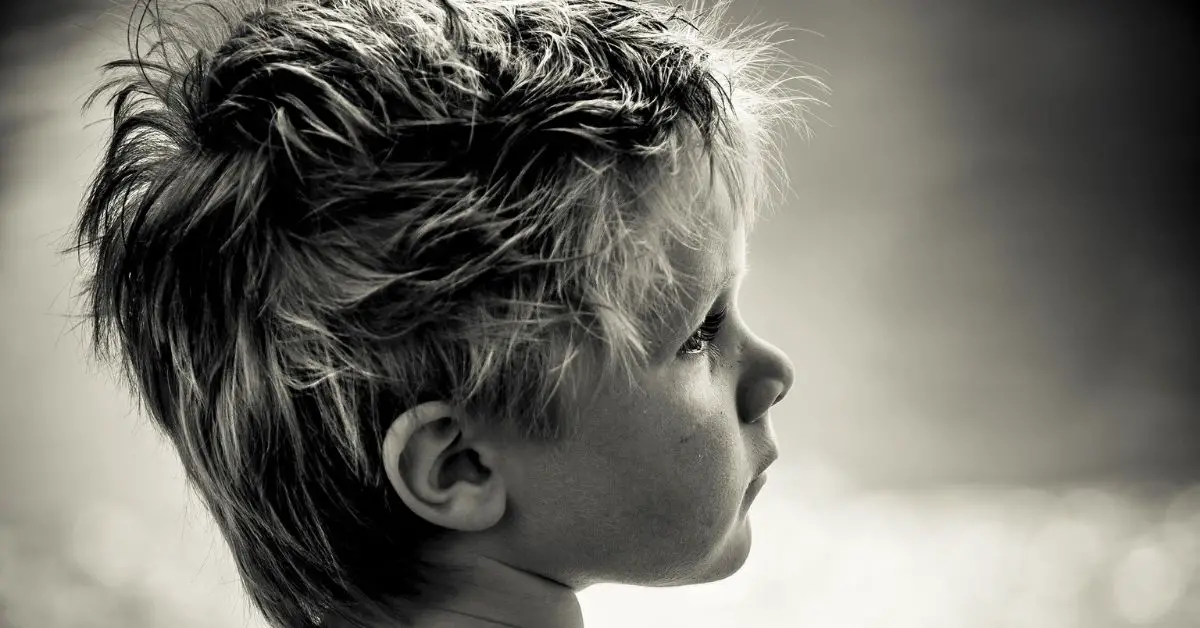
Bonus Fun Fact
If given the opportunity to paint their room with a single color, 85% of Only Children said that they would choose Purple!
Check out night-light projectors on Amazon.
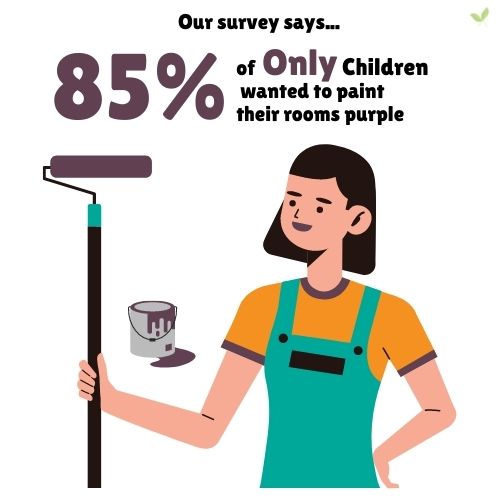
The Truth About Birth Order
The Birth Order Theory remains just that – a theory. There have been countless studies done to prove the effects of birth order, but the results are all inconclusive.
However, it cannot be denied that the pattern of birth order, and the personality traits and characteristics of firstborns, middle children, and the youngest children are quite common, and many people relate to their birth order identity.
It does definitely help to know the basics of birth order theory and to try and see if you can relate to where you fit in.
Related articles you might also enjoy:

Rebecca Brown
Rebecca Brown is a mom to two and writer on all things parenting. She has been focussed on content creation and article writing for the last four years, drawing on the inspiration she gets from her own experience as a mother, and the expansive research the job requires.
When not writing, you can find Rebecca outside with the kids, or hidden away enjoying a good cup of coffee!
